Stu – Weight loss can be confusing to say the least, how to exercise and what to eat are all common questions. We think that weight loss should be tackled as a more holistic approach in order to achieve the results you want. Our guest post from Cassie Mendoza-Jones outlines the necessary steps beautifully. Over to Cassie…
Pick up any glossy magazine and there’s a new weight loss or diet regime claiming to have you losing 5kg in 5 days (or something similarly ridiculous.)
In fact, the only way to succeed in this game is with a healthy and balanced approach. My tips will have you losing weight, keeping it off, and maintaining your sanity in the process, without the rose coloured glasses, and with a dose of reality and biochemistry (just a little bit, I promise!)
Diet is (almost) everything
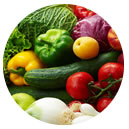
A nourishing, whole food diet will not only help balance neurotransmitters such as serotonin and dopamine, the brain chemicals that help us feel full, happy, motivated and rewarded, but the right diet will reduce sugar cravings that may hamper even your best efforts, improve post-exercise muscle repair and recovery, and boost your energy.
However, exercise is also vital in any weight loss program. Apart from the many benefits exercise associated with exercise, the fitter you become, the more effectively your body mobilises stored fat cells for energy, therefore increasing fat burning. Exercise is also an amazing natural short-term appetite suppressant. The good news is that if you workout in the morning, research shows that you don’t actually become hungrier and over-eat later in the day to compensate for the energy spent exercising, which means any post exercise over-indulgence is more likely a mental thing, and not physiologically induced!
If you can’t keep track of what and how much you’re eating, keep a diet diary. Research shows that people who fill out a diet diary lose weight without even being told to change their diet. Increasing awareness around food intake is sometimes enough to decrease portion sizes.
The post-exercise eating window
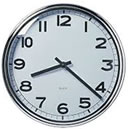
A 2004 study by Deakin University also found that depleted glycogen stores lead to muscle fatigue, changes in gene transcription, as well as changes in metabolic processes such as the metabolism of protein, fats and carbohydrates, including protein degradation or breakdown. Kind of sounds like everything we don’t want to happen, right?
Carbs can (and should) be included in a healthy and effective weight loss plan. The key is eating the right carbs, at the right time, in the right amounts, and finding the carbs that work for you. This means you might choose some fruit, vegetables, starchy vegetables or even (gasp!) grains, if you can tolerate them and if you’re training hard enough. Examples include fruit and nuts, a protein shake with some oats or banana, some chicken and sweet potato, salmon and quinoa or eggs and sourdough toast.
Research actually shows that high GI carbs are a better option than low GI carbs for the post-exercise meal (as they’re absorbed faster), plus no more than 20g of protein. Refueling your body this way will help to repair damaged tissues, support your immune function and move the body from a catabolic (break-down) state, to an anabolic (growth and maintenance) state.
The fat burning zone

The truth is, to lose body fat you need to do a combination of both low intensity and high intensity exercise. This is because in essence, at low intensity exercise, the body chooses fat as the main substrate (fuel) to burn, even though it takes a while to get into that fat-burning zone (40mins+), while high intensity burns through more calories and stored carbohydrate in a shorter time-frame (usually within 20-30mins).
Another tip is to exercise in a fasted state, if suits your body, and you’re not exercising for more than 60-90mins (in which case carb loading is recommended). By exercising on an empty stomach, your body adapts and starts to burn fat more efficiently. Appropriate post-exercise refueling (remember, this means carbs and protein), will help to increase blood sugar sensitivity and activate muscle-growth pathways in the body. If exercising on an empty stomach makes you feel weak and nauseas have a little carbohydrate like a half a banana or a date before training. Basically, just make sure you’re exercising! If you’re not sure how to get started, find a trainer you trust, and get them to create an exercise program for you.
Re-train your brain

Don’t rely on motivation to get you to the gym, or to help you swap bread for broccoli. Motivation is an emotion just like happiness, sadness or excitement. We don’t feel the same emotion all day everyday. Humans just aren’t built like that. We can, however, be consistent in our exercise and meal planning, whether or not we feel motivated. This is what gets you up for training, this is what helps you make healthy meals, and this is what gets results. Try it; it works.
Support your thyroid
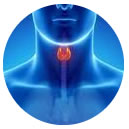
The first step is to make an appointment with your doc or a naturopath for a blood test to check what’s going on, but often this is an overlooked cause of otherwise unexplained weight gain or a real difficulty losing weight. Depending on the health of this crucial gland, there are beautiful herbs and nutrients to help support your thyroid and boost your metabolism such as zinc, selenium, vitamin D, iodine,
Withania and Rhodiola. A balanced diet is also crucial in order to support healthy thyroid function. For example, the thyroid hormone T4 needs selenium (found in nuts, seafood and eggs) to convert to the more active hormone T3, and zinc (found in nuts, seeds, seafood and meat) is needed for the cells to actually take up the hormone for use.
Natural support

About the author

Cassie is qualified in Naturopathy, Nutritional Medicine, Western Herbal Medicine and Touch For Health Kinesiology. She is currently furthering her studies in Kinesiology, as well as a Master of Human Nutrition at Deakin University.
Did you enjoy this post? What have been your weight loss experiences? Would love to hear your thoughts in the comments section below… Stu
fuel your body with powerful, natural and nourishing foods – click here –


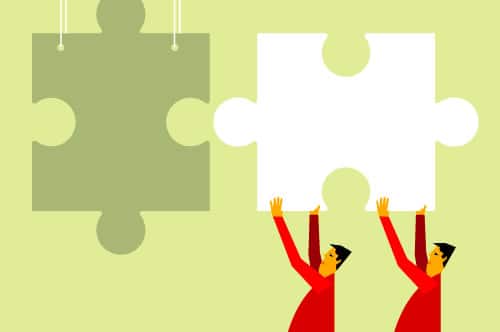
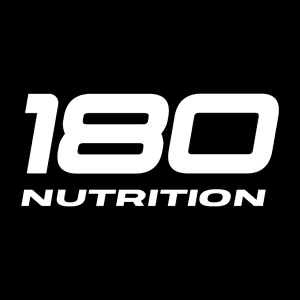
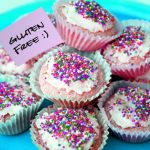

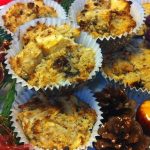
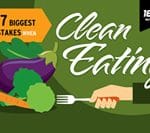
6 Replies to “A Fresh Perspective on Weight Loss”
Thanks for the very informative article. I’m just wondering how much high intensity vs low intensity exercise is best? I do weights sessions (combination of a kind of metabolic style with no or very little rests btw sets with a more standard style ie rest after each set), three times a week, HIIT x 1/2 and the occasional low intensity cardio (which would replace 1 HIIT session). Perhaps this is too much high intensity? Also is there any multi-herb product with say a selection of the herbs you recommend? Thanks!
Hi Ruth,
Glad you enjoyed the post. Your exercise sounds great, but as I’m not a trainer I can’t really comment on if it’s too much or little – I can look more at the effects of your food in relation to exercise etc. There are a couple of products which combine a few herbs & nutrients for blood sugar balance on the market, but these just depend on your needs, so best thing to do would be to go into a health food store where there’s a naturopath working and ask them to prescribe for you. Without knowing more of your history, it’s hard for me to prescribe a single product for your needs.
Hope this helps!
Cassie
Can you please give an example of a healthy hi GI meal that can be consumed after exercise?
Thanks
Yes sure, a banana is great, or a protein shake (I can recommend an amazing brand… 180 Nutrition! 😉 ) with some berries and a date thrown in. High GI is best in some trials as it replenishes glycogen levels sooner, but low GI is also obviously great and definitely still does the trick, albeit a little slower.
Hello, I’m, 47 years old, male, struggled with my weight since I was 20 years old. I had an over active thyroid and had it shut down by radiation 15 years ago, and since the it when to under active. I take synthroid now to bring the level back up.
My weight has ballooned to over 400lbs, I’m 6 feet tall. I’m lost, depressed, and have no idea where or how to start to change my life, or whomtomturn to for help. I’ve tried diets, seen weight specialist, yet I can’t seem to maintain any self discipline, I always fall off the wagon. Any suggestions for me? Can you help me?
Hey Craig… I’ve seen some amazing transformational stories in my time (including my friend Kelli.) and I have no doubt you can do the same!
The one common theme I have seen with people achieving remarkable results, from gold medal olympic athletes to people reversing chronic disease… is they’ve all had a coach which holds them accountable. Someone they can check-in with on a regular basis to make sure they are on track. If this is something you would like to do, I can recommend the lovely Lynda here, who you will be in good hands with. Hope that helps, Guy
Comments are closed.